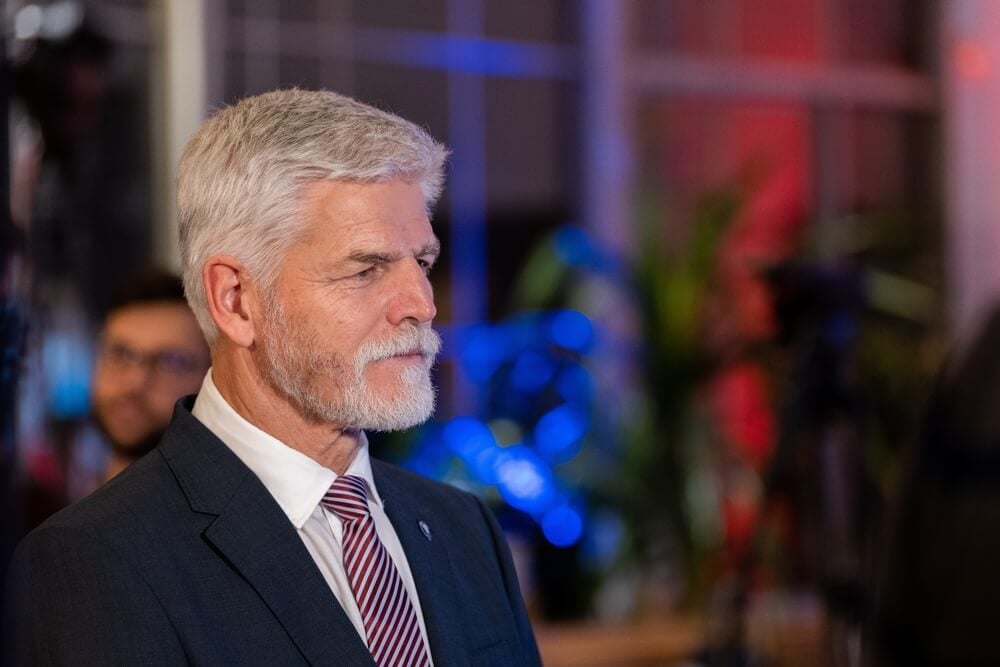Taiwan is trying to keep the European Union's attention focused on tensions in East Asia due to China's increasingly pronounced economic and security pressures on its environment.
At a time when the EU is also straining its relations with Beijing, the recent President of Taiwan, Tsai Ing-wen, is sending a strong message from Taipei to European capitals. The tour, which begins on Saturday and will last the entire next week, aims to strengthen their mutual relations.
As expected, Tsai Ing-wen, who left the presidency last May after two consecutive mandates, will have a low-profile agenda, which will mainly include her meetings with the business communities and influential opinion makers.
Meetings with state officials have not been announced but are certainly not ruled out. Given the announcement from Taipei that the former president will first visit the Czech Republic, followed by France and Belgium, it is highly probable that she will also meet some of the European politicians in Brussels, most likely members of the European Parliament.
A carefully tailored diplomatic channel
This is the first time Taiwan's recent president has travelled abroad since leaving office last May, when she handed over the mandate to her colleague from the pro-independence Democratic Progressive Party, Lai Ching-te.
Despite not holding a formal office, Tsai Ing-wen travels to Europe as a person with significant political prestige and influence in Taiwan. Her visit is a deliberate move by Taipei to communicate with key allies at a high level, firmly embedded in official Taiwanese diplomacy.
The recent directive from the current president of Taiwan, Lai Ching-te, to the National Security Council and the Foreign Ministry to meticulously plan the former president's visit to Europe confirms this.
For Taiwan's interests, the visit is timely as the EU has tightened its policy towards China
The timing of her visit to several European capitals and the EU administration headquarters in Brussels appears to be an attempt to facilitate the cooperation between new political groups on both sides following the January presidential elections in Taiwan and the June European Parliament elections.
For Taiwan's interests, the visit is timely as the EU has tightened its policy towards China by imposing tariffs on the import of electric vehicles, triggering retaliatory measures from Beijing.
From a political perspective, the European Union adhered to its policy of recognising "one China." However, in a special resolution from last February, the European Parliament affirmed Taiwan's status as a "key partner and democratic ally in the Indo-Pacific region" while strongly denouncing China's "continued military provocations against Taiwan."
A symbolic visit to Prague
Beijing will view the former Taiwanese president's visit to Europe as a new indication of Europe's tightening relations with China and a new challenge for its diplomacy, which in recent years has primarily focused on encouraging Europeans to distance themselves from US policy towards China and the Pacific.
 Prague was not chosen by chance as the first point of the European tour of the former Taiwanese president - President Petr Pavel
Prague was not chosen by chance as the first point of the European tour of the former Taiwanese president - President Petr Pavel
Prague was not chosen by chance as the first point of the European tour of the former Taiwanese president. On the one hand, it is a response to a very symbolic gesture of friendship, when the President of the Czech Republic, Petr Pavel, just one day after being elected president in January 2023, called President Tsai Ing-wen on the phone and, as he stated at the time, "agreed on strengthening their partnership."
European leaders shy away from direct contacts with the Taiwanese establishment due to China's strong opposition, so the Czech president's gesture was a precedent in that respect.
This is why Tsai Ing-wen's arrival in Prague, where she will speak at Forum 2000, at the beginning of her European visit, also carries a pragmatic diplomatic element.
Eastern Europe as a bridge of cooperation
Taiwan views Central and Eastern Europe as a more favourable part of the continent, which, unlike the so-called "old Europe," does not hesitate to show a harsher approach to relations with China.
Within the framework of the Chinese Belt and Road project, the Baltic states, particularly Lithuania, initiated a process of reducing the forum of cooperation between China and the countries of Central and Eastern Europe (16 plus 1).
Also, in the context of the Russian invasion of Ukraine, Eastern Europeans see a solid alliance between Beijing and Moscow, and based on that, they largely profile their animosity towards China. The west of the continent is more cautious.
Some of the largest recent Taiwanese investments are in Western Europe
"As the two theatres on NATO's eastern flank and on the Indo-Pacific merge in front of our eyes, CEE governments should point out the need to look strategically at the developments around Taiwan in conjunction with developments in Ukraine, as Moscow and Beijing stand back-to-back in the competition to shape the emerging global order," wrote Alicja Bachulska from the European Council on Foreign Relations recently.
She asserts that the countries of Central and Eastern Europe serve as the "engine of growth for Europe-Taiwan ties," while simultaneously expanding their joint economic operations.
Some of the largest recent Taiwanese investments are in Western Europe, such as the investment of the world's largest semiconductor manufacturer, Taiwan's TSMC in Dresden, Germany, worth 3.5 billion EUR, or Taiwan's Prologium mega-factory of batteries for EVs in Dunkirk, France, worth around 5 billion EUR.
The visit of the former Taiwanese president to Europe will take place under the watchful and frowning eye of Beijing, but without many consequences from that side. The visit coincides with a time when both the EU and Taiwan are seeking to intensify their mutual cooperation, with a common goal of curbing China's aggressive economic and security expansion.